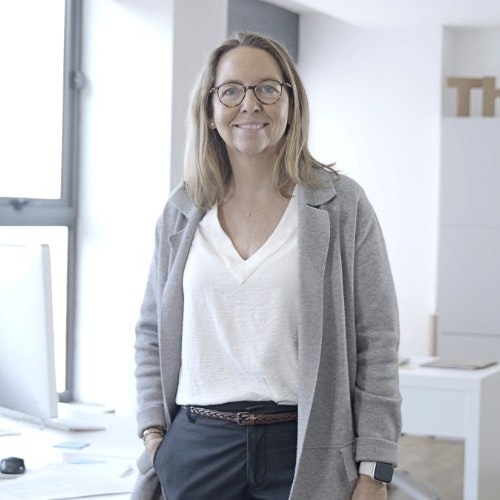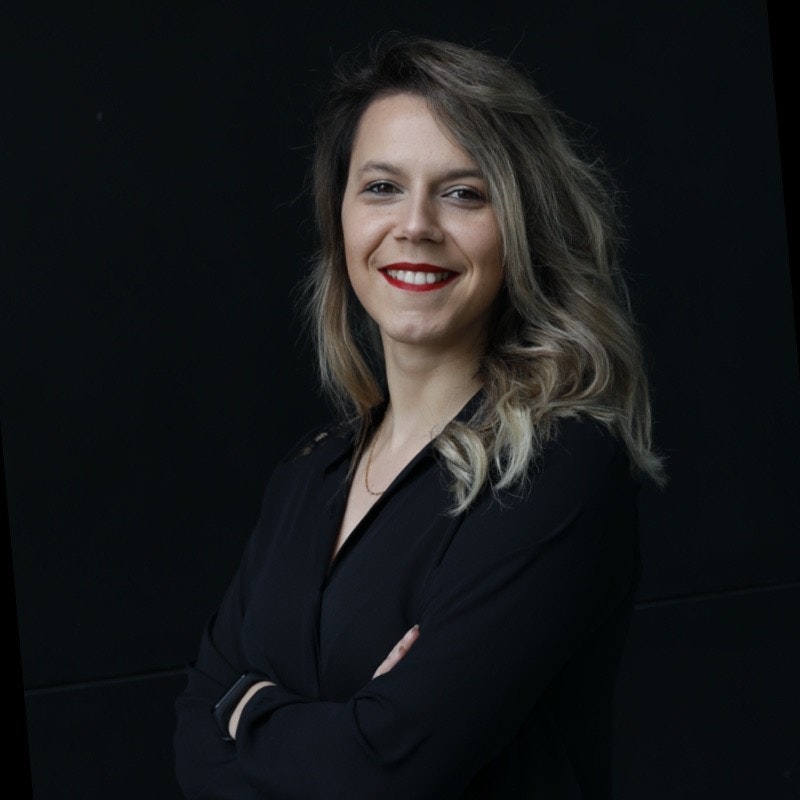Last month, the three winners of the 11th edition of the European Prize for Women Innovators were announced at the European Innovation Council (EIC) Summit in Brussels.
The prizes recognise the important role of women who drive change and foster innovation-driven growth in the EU, and it is jointly organised by the European Innovation Council, SMEs Executive Agency (EISMEA) and the European Institute of Innovation and Technology (EIT).
Here, we speak to the three winners about the motivation behind their businesses, their successes to date and how it feels to be named the winners of the prizes.
The Women Innovators Award

The Women Innovators award is open to women founders and cofounders from the EU member states and associated countries. This year’s winner is Agnès Arbat, cofounder of Oxolife, a Spanish company developing drugs to enhance fertility by improving embryo implantation and simplifying infertility treatments.
Arbat cofounded the biotech in 2013, after starting a proof of concept in 2011. Right now, she says the team is developing OXO-001, a pill which acts directly on the womb lining to make it more receptive to embryos implanting.
All the funds that we've raised from the really early stage to now have been very, very important, specifically regarding EIT Health.
“We have just closed our phase two clinical trial, where we’ve seen that OXO-001 is able to enhance embryo implantation by more than 23% and with that, increasing life birth rates up to 7%,” says Arbat.
Oxolife’s phase two trials led to the birth of 148 babies, something Arbat says made her particularly proud as a cofounder.
“It's a major achievement in the fertility space, so we are very happy and proud of this. The second indication for OXO-001 is in patients that are suffering from Polycystic Ovary Syndrome (PCOS). We are closing the preclinical phases for this this year, and look forward to starting phase two in 2026.”
Oxolife has raised $15m so far, including grants from EIT Health and the Ministry of Science and Innovation of Spain. As the company is not yet receiving revenue or backed by an academic institution or hospital, Arbat says support has been key to the company’s growth and success.
“All the funds that we've raised from the really early stage to now have been very, very important, specifically regarding EIT Health,” says Arbat.
“We were designing the phase two clinical trial in Europe, and it was the first time that the compound was going to be given to patients that were looking for pregnancy. We wanted to have this conversation with regulatory bodies through an assessment, and EIT supported us with funds to have these conversations.”
The Rising Innovators Award

The Rising Innovators award is open to promising young women innovators under 35. This year’s winner is Camille Bouget, cofounder of Scienta Lab, a French AI-powered platform addressing therapeutic needs for immuno-inflammatory diseases.
Bouget cofounded Scienta Lab in 2021 to help pharmaceutical and biotech companies make earlier decisions about what therapies to develop and which patients they will benefit.
“Clinical trials in this space are long, costly and fail over 90% of the time,” says Bouget. “Our proprietary platform, EVA, is a foundation model able to simulate how new treatments which haven’t been tested yet would affect real patients — even from minimal early-stage data like lab experiments on cells or animals.”
The idea for Scienta Lab emerged from Bouget’s firsthand experience working in the pharmaceutical industry. After completing her doctoral degree in pharmacy, Bouget worked on the launch of several autoimmune therapies on the French market and at a global level at Sanofi, Sandoz and Galapagos. Throughout these roles, one persistent challenge she observed was the difficulty of clearly identifying the patients who would benefit from new drugs.
We can help pave the way for a more inclusive innovation ecosystem that encourages young women to believe in their ideas and step into the world of innovation.
As a result, Bouget says, physicians were following a trial and error approach for their treatment decisions, where patients would spend months on ineffective therapies before switching to alternatives.
“Motivated to fill this gap, we initially launched a project focused on rheumatoid arthritis to identify the best therapeutic option for patients by using machine learning techniques,” says Bouget. “We quickly realised that the most impactful use of this technology wasn't at the commercial stage (when the drug is already on the market) but much earlier, during the R&D process.”
Today, Bouget says EVA is functional across 15 autoimmune conditions and has raised $4.4m. Next, Scienta Lab aims to scale its technology across new diseases and expand collaborations to drive the future of AI-powered precision immunology.
“My hope is that by sharing my journey along with those of the other inspiring winners, we can help pave the way for a more inclusive innovation ecosystem that encourages young women to believe in their ideas and step into the world of innovation,” says Bouget.
The EIT Women Leadership Award

The EIT Women Leadership award is open to exceptional members of the EIT Community. This year’s winner is Débora Campos, founder and CEO of AgroGrIN Tech, a Portuguese company that developed a process to transform industrial fruit waste into functional food ingredients.
“Our ultimate mission is to build a global ingredient company that makes clean-label the new standard — proving that sustainability and profitability can go hand in hand,” says Campos. “For our end users, which include food manufacturers, the impact is twofold: access to innovative and functional ingredients that elevate product quality and nutritional value while contributing to a more circular, resilient food system.”
The idea for AgroGrIN Tech was born during Campos’ PhD at the Universidade Católica Portuguesa, where she looked at ways to extract valuable compounds from fruit waste. Campos explains that, as a scientist, she was struck by the untapped potential in what was often discarded — not just environmentally, but nutritionally and economically.
That ecosystem helped us sharpen our business model, validate our technology and accelerate our go-to-market strategy.
“I realised that if we could find a way to industrialise this science, we could unlock a new category of ingredients and reshape the way the food industry sources and thinks about waste,” says Campos. “AgroGrIN Tech emerged as a vehicle to transfer this academic knowledge into real-world impact.”
Campos notes how early-stage support was critical to the early success of the business, with programs like EIT Food Accelerator Network providing not only funding, but credibility, mentorship and access to a network of like-minded innovators and industry stakeholders.
“That ecosystem helped us sharpen our business model, validate our technology and accelerate our go-to-market strategy,” she says. “Without that foundational support, our journey would have been significantly slower and more uncertain.”
Campos considers one of her proudest moments with AgroGrIN Tech as seeing the first pilot facility come to life. Being awarded the Women Leadership prize has been another notable and special moment.
“It’s an incredible honour — both personally and professionally,” says Campos. “This recognition validates not only the hard work behind AgroGrIN Tech, but also the broader message that science-led, purpose-driven female entrepreneurship can truly drive change.”




